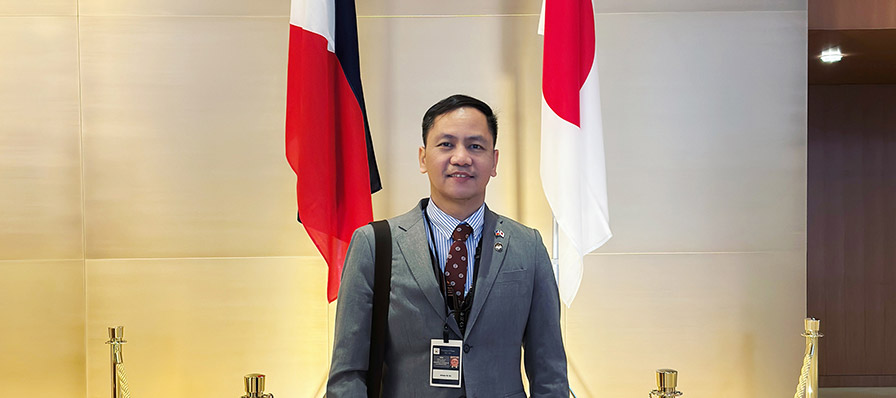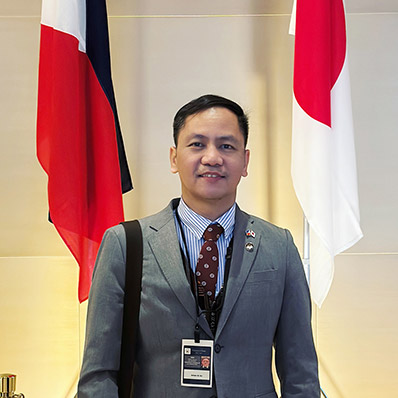Move to the Global Stage as Diplomat
Interview with Anwar Ito
Filipino Diplomat
Second Secretary and Consul at the Philippine Embassy in Tokyo, Japan
Administrative Officer
Head of the Administrative Section
Q: What is your main responsibility in your line of work?
A: My main responsibility at the moment is to head the administrative section of the Philippine Embassy in Tokyo. My section is responsible for ensuring the smooth day-to-day operations of the Embassy. This includes human resources, protocol, finance, and property, among others. Of course, this is on top of other tasks that we might be assigned to do from time to time.
Q: What motivated you to become a Philippine Diplomat?
A: My interest in becoming a diplomat started in 2009. During this time, I was on a two-year scholarship, and studying Multimedia in Australia. In that school, I was given the opportunity to become an international student ambassador.
It is a position given to selected international students for the purpose of helping the institution come up with activities for the benefit of its international students. We would coordinate closely with school and local government officials on these activities. In that role, I was able to get acquainted with and interact with many people of different nationalities. Having done that, I realized that working in an international context was something that I would be interested in doing in the future. When I returned to the Philippines, I took the FSO (Foreign Service Officer) exams and fortunately made it. I am lucky that I was able to fulfill that goal eventually.
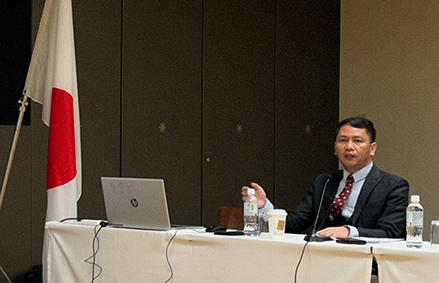
Q: As you said, you studied in Australia? Before studying there what did you do?
A: I was a public school teacher working at a school in Mindanao, Philippines. I started my career in the government as a substitute teacher in 1999, fresh from passing the Licensure Examinations for Teachers. I have since joined the Department of Education (DepEd) until 2014, when I transferred to the Department of Foreign Affairs (DFA).
Q: As a Philippine Diplomat, what countries have you worked in before?
A: Since joining the DFA in 2014, I have been assigned to two (2) embassies. The first one was the Philippine Embassy in Islamabad in Pakistan where I spent two years, from 2017 to 2020. Thereafter, I was transferred here at the Philippine Embassy in Tokyo.
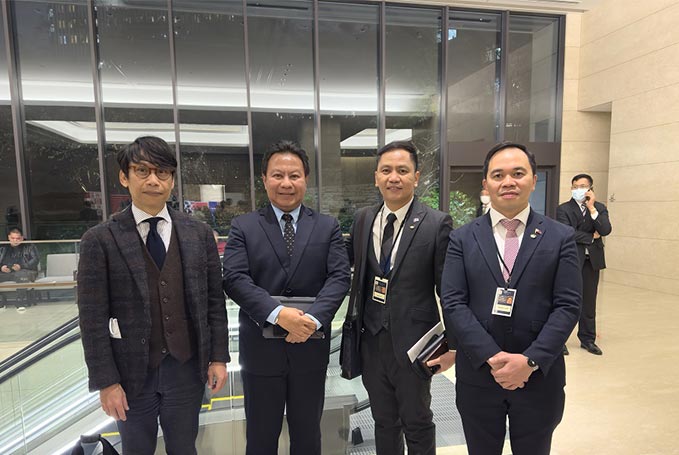
Q: Based on your experience, how would you compare Japan to other countries? Do you have any interest in Japanese culture?
A: There are a lot of differences, such as in their food or culture or religion. One thing that comes to mind is that the Japanese people are known to be very polite and considerate. They try to make sure that they don’t inconvenience others. I think it is in culture that I draw the biggest difference between the countries, and there is beauty in each of these cultures.
But even as a small child, I was quite drawn to the pop culture of Japan, like anime and music. In Tokyo, my interest in analogue music was able to flourish, because it is one of the best places to buy vinyl records. I have since built quite a collection of vinyl records as I frequent many vinyl shops here in Tokyo, which is something I could not do as much in Pakistan or in Australia. There are also plenty of other hobbies to indulge in.
Q: Aside from music, what other hobbies do you have?
A: I like Photography. In terms of Photography, it’s quite easy here in Japan to be moving from one place to the other and capture breathtaking photos because of the convenient and efficient transportation system. If one weekend I wanted to go outside of Tokyo, I can easily take a train somewhere and take some photos while doing some traveling.
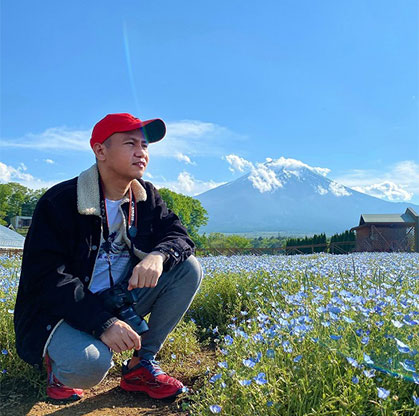
Q: When did you start studying Japanese?
A: I came directly from Pakistan before I got cross posted to Tokyo so I didn’t really have the time to study Nihongo prior. Usually, if you get posted to Japan, there is a requirement for you to study Nihongo for at least 30 hours. I didn’t have that. When I arrived here in January 2020, one of the first things I did during the pandemic was to use that free time to study Nihongo. I enrolled in a traditional Nihongo school near my place. I had to go to class everyday and interact with the students, from very mixed background and age levels. I found it difficult because I had to hit the ground running, so to speak. I didn’t know Hiragana, Katakana, or Kanji before going to school. So I ended up having to catch up on a lot of prior studies that I should have done before enrolling in the school and at the time, the teachers did not speak English. It was quite difficult for someone who was a complete beginner to be thrust into that kind of environment. I had difficulty adjusting for a while.
Q: Was it your decision to join the JLRC program?
A: Yes. When the Foreign Service Institute announced that there is a Nihongo class program being offered in collaboration with JLRC for DFA Employees including those working at Post, I immediately applied to be included. I thought this would be a better option for me considering that the class is tailored towards Filipino learners by Filipino teachers, so the flow of the class, the pacing, the speed would suit my individual needs more. Also, I would easily be able to relate with my classmates and that would make the classes and the study more interesting and relevant.
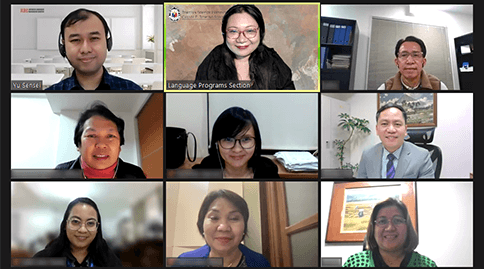
Q: How would you compare JLRC to your previous school?
A: I think my former school was very traditional, not really suited to my background and my particular needs, and the teachers and the school were not very flexible. It is also difficult to communicate with them as they don’t speak English. In that school, you are expected to match or keep up with the program and the school did not do any sort of prior assessment so that your learning would be much more focused. That is how the JLRC program is different because it is flexible and it better suits my and my DFA colleagues’ needs in learning.
Q: How do you study or practice your Japanese?
A: I just try to use as much Nihongo as I can in my everyday dealings. Probably not as much in my usual work because we have interpreters and translators for that, but in my personal interactions with Japanese people. When I take a taxi, if I go to the supermarket, if I watch a movie, or if I approach a Japanese person to ask a question or for some directions, those are the times that I try to practice my Nihongo. I think that’s the most important part of learning, to be able to practice what you learn.
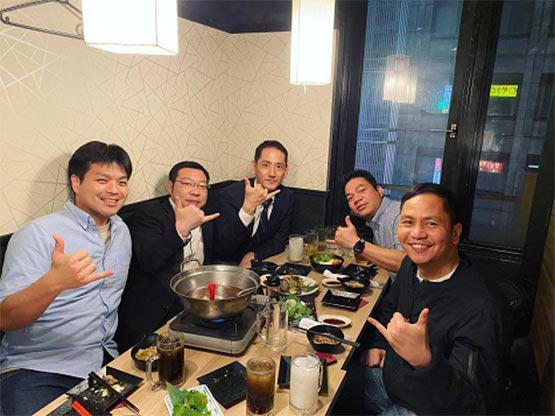
Q: Which part of studying Japanese do you like?
A: Perhaps the actual conversation and the practice tests. When we are asked to read words or practice conversations with sensei, I enjoy those things.
Q: Did your studying make an impact in your work in Japan?
A: Yes. I think it’s important for everyone, not just those working but also those who are temporarily visiting, to at least know a little bit of Nihongo. I believe this would make your experience in Japan more fulfilling. For professionals, it would impact the way that you do your work in more ways than you can imagine. Even in my case, where speaking Japanese is not expected nor required in my usual line of work, there are times when being able to speak even a little bit of Nihongo is crucial.
To give an example, I was assisting a very high level government official from the Philippines, so I was at the airport interacting with airport employees and officials on behalf of the said Philippine official. My principal was quite impressed and thought I had a good command of the language, probably basing it on my interactions with airport officials. I think this demonstrates that there is a fine line between speaking and knowing the grammar and speaking with confidence. That is, even if your grammar is not 100% perfect, your confidence in saying it and keeping the right pronunciation and enunciation makes a good impact. That’s probably why the Philippine official said “your Nihongo is good” because it came naturally while I was having a very brief conversation with Japanese officials.
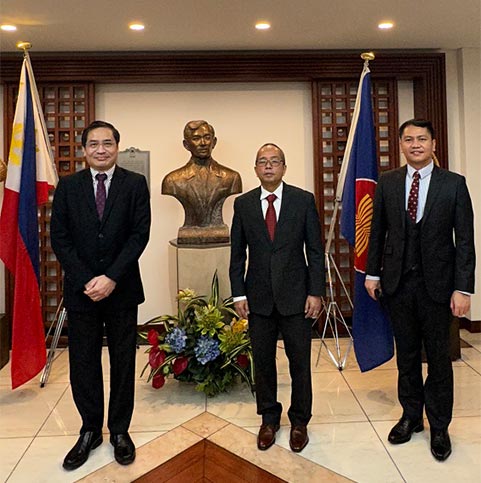
Q: What do you think are the important factors about working in Japan as a professional like yourself?
A: You must be resilient and you must adapt, and you must be willing to learn the language and embrace the culture. You cannot deny there is culture shock when you arrive here. Especially those who are staying here longer than a usual tourist would. It’s easy to be fascinated with Japan with all of its sights and sounds and the people and the food but over time, it becomes challenging because the Japanese people are not naturally friendly, or otherwise put, they are naturally shy in their social interactions with foreigners. They are unlike Filipinos who find it easy to be sociable. So if one person has a problem with keeping to himself and not being able to socialize as much as they want in an environment where there are not a lot of Filipinos around, then they must prepare to be adaptable at least.
Q: Thank you for that. As a last word, can you give a message to those who are currently studying or want to study Japanese language?
A: I might not be the perfect student of Nihongo because I had my share of struggles and I find Nihongo not an easy language to learn. In fact, if it’s not the most difficult it’s certainly one of the most difficult languages I have to learn. But don’t let this discourage you. Keep on practicing.
There is a value to incremental learnings as you go along in your journey. Don’t be discouraged and try to keep Nihongo around you as much as you can. Even if you don’t live in Japan, at least try to make sure that you are surrounded or immerse yourself in a lot of Nihongo content. That would be things like watching Japanese language movies, news, or even TV shows as much as you can because at the very least, that will help improve your familiarity of the language.
